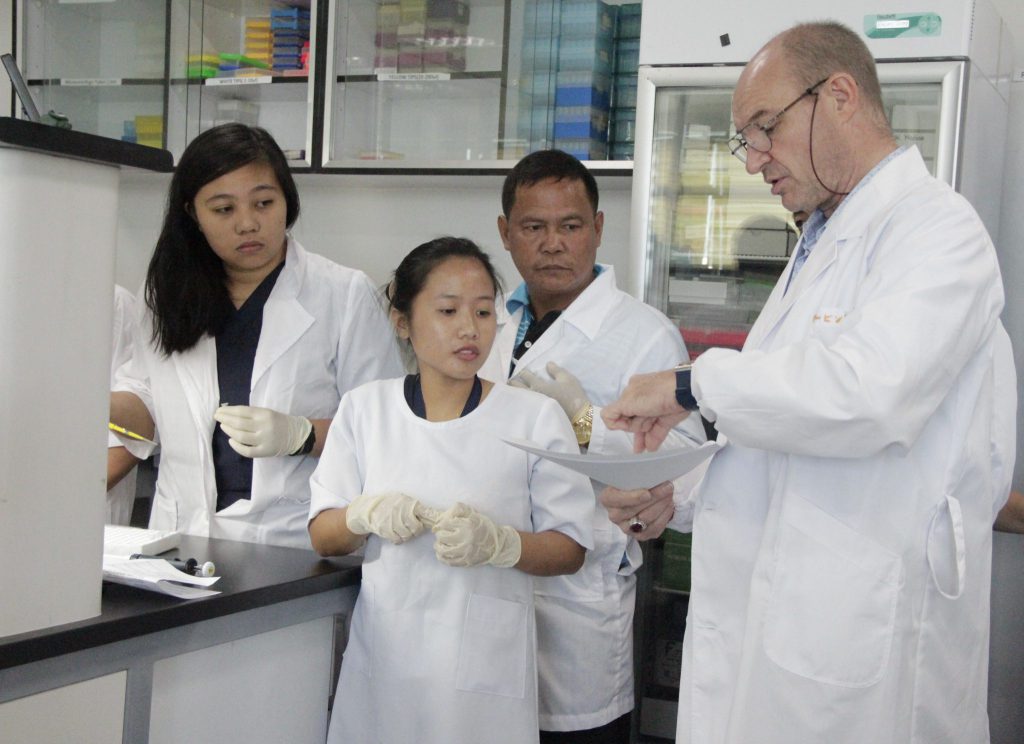Experts from different Southeast Asian countries shared their knowledge and expertise in combatting surra during a five-day international conference and training workshop hosted by the Philippine Carabao Center (PCC) at its national headquarters and genepool in the Science City of Muñoz, Nueva Ecija.
Titled, “Trypanosomes and their vectors in animals and humans in Southeast Asia (SEA)”, the event was aimed at expanding knowledge of the participants on trypanosomes and its vectors, developing skills on biting fly trapping, and identifying various diagnostic techniques for trypanosomes including ELISA and molecular techniques.
Held last January 15-19, it was also meant to support the strengthening of the country’s veterinary services to control surra in accordance with the international standards set by the World Organization for Animal Health (OIE) and in the development of joint research projects among French and South East Asian research institutions and universities.
The activities consisted of a series of lecture-discussions, laboratory hands-on and open workshop for the enhancement of skills and knowledge of participants of allied fields from the academe, research institutions and animal service laboratories of government and private sectors in the Philippines.
The Faculty of Veterinary Technology of Kasetsart University (FVT/KU) in Bangkok, Thailand; International Center for Cooperation in Agricultural Research for Development (CIRAD), and the Central Mindanao University under the umbrella of the BioZoonoSEA Platform and GREASE helped organize the activities undertaken during the training-workshop.
Their roles strengthened cross-sectoral and multidisciplinary exchanges about trypanosomosis survey and management among professionals from different sectors (animal health, human health, environment, and rural development).
PCC Executive Director Dr. Arnel N. Del Barrio welcomed the guests and the participants. In his remarks, he emphasized the importance of addressing and analyzing the issues related to Trypanosomes as it greatly affects the health condition of animals, specifically buffaloes not just in the Philippines but in other countries as well.
“We are certain that this workshop will end with fruitful discussions and promising collaborations,” Dr. del Barrio said.
Dr. Reuben Sharma, Dr. April Wardhana, and Prof. Sathaporn Jittapalapong discussed the situation of surra and its vectors in Malaysia, results of the survey on Trypanosoma evansi in Indonesia, and zoonotic parasites in Thailand, respectively.
On the other hand, the activity went interactive as Director Dr. Ronnie Domingo of the Bureau of Animal Industry (BAI) talked about the “Current status of surra and its control in the Philippines”. His presentation elaborated and complemented the topic presented by Dr. Allan Dargantes (CMU) regarding “Situation and impact of surra in the livestock in Mindanao” and the discussion by Dr. Jose Escarlos Jr. of Central Mindanao University (CMU) on the “Knowledge, Attitudes and Practices of village farmers in Mindanao for surra and its control”.
The other resource persons were Dr. Rafael Mercado of the Department of Agriculture (DA) who talked about “The Mindanao Unified Surra Control Approach (MUSCA) Experience”; Dr. Claro Mingala of PCC who focused on “Buffalo breeding program in the Philippines including the problem of surra and hematophagous flies”, and Dr. Marc Desquesnes of CIRAD who tackled the topic “A typical human infection by animal trypanosomes in SEA”.
After an open confab at Day 1, it was followed by a series of training workshop that focuses on “Biting Insects biology and trapping”, “Biting flies trapping and identification/Trypanosome DNA-based identification”, “Biting flies and Trypanosomes: identification” and “Trypanosomes: parasitological, serological and molecular diagnosis” from Day 2 to Day 5.
The topic presentations were complemented with laboratory hands-on. A total of 60 participants attended the training-workshops.

